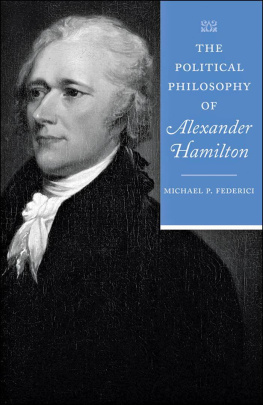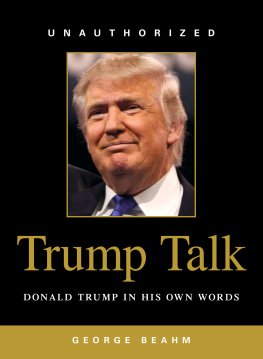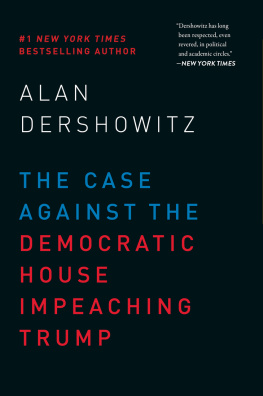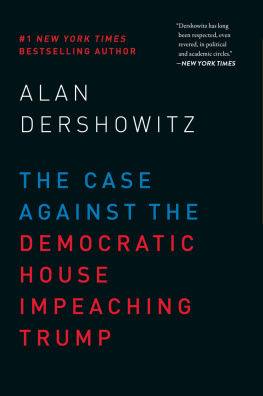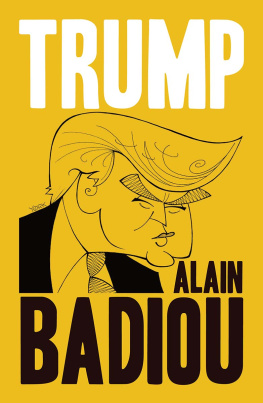J. Michael Martinez is the author of more than a dozen books, including The Greatest Criminal Cases: Changing the Course of American Law (2014) and Political Assassinations and Attempts in U.S. History (2017). He resides in Monroe, Georgia, and teaches political science and public administration courses at Kennesaw State University in Kennesaw, Georgia. Visit him online at www.jmichaelmartinez.com.
Sex scandals, as opposed to political corruption scandals, are relatively easy for the public to understand. Corruption cases can be convoluted and complex. The paper trail and circumstantial evidence of malfeasance can be opaque for anyone not immersed in the minutiae of the transactions. Had the Watergate investigation not produced tape recordings of President Richard Nixon discussing bribery and cover-up activities, the outcome might have been different. Ronald Reagan escaped impeachment for Iran-Contra because his participation in the scheme was not clear and definitive. Warren G. Hardings legacy was not tainted by Teapot Dome until after his death. Even then, he was not seen as an active conspirator but as a passive, disengaged administrator.
Sex scandals usually possess a narrative clarity lacking in corruption cases. When the secretary of the treasury fell into the embrace of a comely but manipulative woman in the heat of passion and sought to conceal evidence of the affair, his motives were not difficult to fathom. When the president of the United States engaged in sexual relations with an intern half his age and lied about it, everyone could understand what happened and why. When an aging, avuncular congressman lurked around town in the company of a much younger stripper, his desires were apparent. These men behaved badly, cheating on their wives and using their powerful positions to assist in achieving sexual gratification. Confronted with evidence of their behavior, they lied and attempted to cover up their actions to avoid public embarrassment. Anyone watching the scenario could understand even if they disapproved of the behavior.
Public figures are sometimes held accountable for sex scandals because the public can discern cause and effect. Critics argue that a political figure who surrenders to temptation does not possess the character and judgment necessary to conduct the publics business. Supporters observe that although such behavior is not to be encouraged, it does not constitute an irredeemable violation of the public trust.
Whether a public figure can survive a sex scandal depends on several factors. As discussed within the book, the salience of a sex scandal varies across the span of American history, acting as a metaphorical pendulum of societal mores. During the first hundred years of the republic, private affairs affected the publics opinion of whether an elected official could be trusted to transact public affairs. From the 1880s until the 1970s, standards changed. The private lives of public figures were mostly off-limits. From the latter half of the twentieth century and into the twenty-first century, sexual conductor, more appropriately, misconductagain became relevant to the evaluation of public figures.
Even in eras when sexual impropriety captures headlines, outcomes vary, depending on circumstances. A sex scandal wrecked Gary Harts presidential bid, Bob Packwoods Senate career, Gary Condits House career, and Anthony Weiners House career. Yet Grover Cleveland survived salacious stories of his illegitimate child. Allegations that Donald Trump sexually assaulted more than a dozen women, and the emergence of a videotape of Trump bragging about sexual assault, failed to derail his political career. In other cases public figures survived a sex scandalDaniel Sickles, Henry Ward Beecher, and Bill Clinton readily spring to mindbut their reputations were forever diminished.
The outcomes in sex scandals often are fact determinative. Gary Hart had presented himself in the media as a white knight. Although a myth arose that Gary Hart dared the press to follow himhe did not do thishe certainly flaunted convention and appeared to be a hypocrite. Hoisting him on his own petard appeared to be well-deserved comeuppance for an elected official who sometimes appeared arrogant and condescending.
Bob Packwood was a serial predator who preyed on vulnerable young women who feared for their professional careers if they resisted his advances. Had he appeared to be a sympathetic figure or exhibited genuine remorse, as Bill Clinton eventually did, Packwood might have lived to legislate another day. With his self-serving rationalizations and his tone-deaf response to his critics, it was little wonder that Packwood was drummed out of the United States Senate.
Gary Condit presented an unusual case because his affair only surfaced after his lover, young Chandra Levy, went missing. Authorities eventually discovered her dead body. Suspicion that Condit was involved in her disappearance and death doomed his political career. He might have survived a garden-variety sex scandal, assuming such a thing exists, but he could not weather the storm when the young woman was murdered.
Anthony Weiner presented an unusual case of sexual misconduct. Weiners scandals arose because he transmitted lurid photos of himself in various stages of undress. The overwhelming majority of sex scandals in American history concerns public figures behaving badly and attempting to cover up evidence of their misdeeds. Weiners misdeeds were perverse because an essential feature of the scandal was his deliberate disclosure of the offending material. The psychology of a public man who would willingly send sexually explicit photographs of himself to third parties is difficult to understand. That he sexted multiple times, even after he had been caught and suffered devastating consequences, defies rational explanation. Weiners career did not survive public disclosure because he insisted that it should not survive. Perhaps he suffered from a severe case of impostors syndrome. He feared that he was not good enough to hold high office. Rather than waiting for others to discover his innate deficiencies, he telegraphed (or more precisely, transmitted via social media) incontrovertible proof that he was unworthy of the public trust. How else can one explain his self-destructive behavior?
History teaches that powerful men can survive sex scandals through one of two diametrically opposed extremes. At one end of the spectrum, the public figure refuses to comment on the issue or vehemently denies it happened. This strategy only works if there is no definitive proof such as photographs, recordings, or DNA evidence. During his lifetime Thomas Jefferson never publicly commented on or acknowledged the rumors about his sexual relationship with Sally Hemings. It was only 170 years after his death that DNA testing indicated the likelihood that he had engaged in sexual relations with his slave and fathered one or more of her children.
At the other extreme a political figure who seems genuinely remorseful and seeks forgiveness can recover from a sex scandal, especially if he can portray himself as acting nobly. Grover Cleveland refused to hide from allegations that he had fathered an illegitimate son, although he suggested that he might not be the father owing to Maria Halpins promiscuity. His public stance was that he would do the right thing and support the child. In this instance Cleveland could count on his public reputation as Grover the Good to gain the benefit of the doubt from a public that otherwise would have been wary of self-serving statements by a crafty politician.
Political corruption is arguably far more relevant to a public figures fitness to serve than is his sexual behavior. In fact, this observation has helped many a public figure contest charges of sexual impropriety. Alexander Hamiltons defense in the Maria Reynolds affair was to admit that he had engaged in sexual intercourse outside of his marriage, but he had not embezzled money or otherwise betrayed the public trust. Similarly, Bill Clinton claimed that although his private behavior was reprehensible, it was confined to the private sphere. It was between him and his wife. As president of the United States, he had pursued popular policies that protected Americans and boosted the health of the economy. Every public figure caught in a sex scandal from the Founders to Donald Trump has argued that being an abysmal human being is not the proper standard to evaluate the figures performance. The question is whether the persons policies and programs benefit the populace, or at least a portion thereof.



